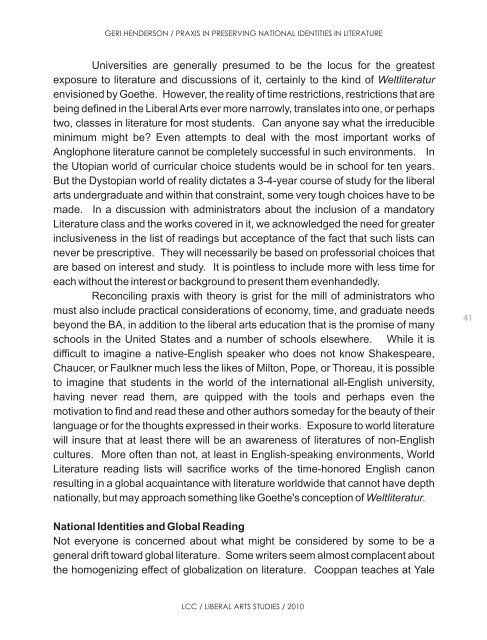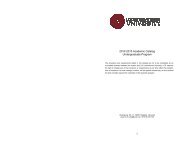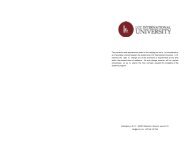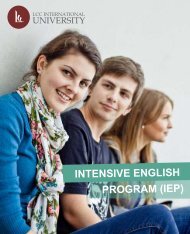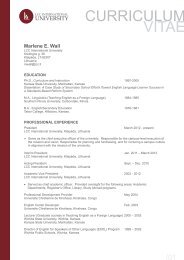lcc liberal arts studies / 2010 volume iii - LCC International University
lcc liberal arts studies / 2010 volume iii - LCC International University
lcc liberal arts studies / 2010 volume iii - LCC International University
Create successful ePaper yourself
Turn your PDF publications into a flip-book with our unique Google optimized e-Paper software.
GERI HENDERSON / PRAXIS IN PRESERVING NATIONAL IDENTITIES IN LITERATURE<br />
Universities are generally presumed to be the locus for the greatest<br />
exposure to literature and discussions of it, certainly to the kind of Weltliteratur<br />
envisioned by Goethe. However, the reality of time restrictions, restrictions that are<br />
being defined in the Liberal Arts ever more narrowly, translates into one, or perhaps<br />
two, classes in literature for most students. Can anyone say what the irreducible<br />
minimum might be? Even attempts to deal with the most important works of<br />
Anglophone literature cannot be completely successful in such environments. In<br />
the Utopian world of curricular choice students would be in school for ten years.<br />
But the Dystopian world of reality dictates a 3-4-year course of study for the <strong>liberal</strong><br />
<strong>arts</strong> undergraduate and within that constraint, some very tough choices have to be<br />
made. In a discussion with administrators about the inclusion of a mandatory<br />
Literature class and the works covered in it, we acknowledged the need for greater<br />
inclusiveness in the list of readings but acceptance of the fact that such lists can<br />
never be prescriptive. They will necessarily be based on professorial choices that<br />
are based on interest and study. It is pointless to include more with less time for<br />
each without the interest or background to present them evenhandedly.<br />
Reconciling praxis with theory is grist for the mill of administrators who<br />
must also include practical considerations of economy, time, and graduate needs<br />
beyond the BA, in addition to the <strong>liberal</strong> <strong>arts</strong> education that is the promise of many<br />
schools in the United States and a number of schools elsewhere. While it is<br />
difficult to imagine a native-English speaker who does not know Shakespeare,<br />
Chaucer, or Faulkner much less the likes of Milton, Pope, or Thoreau, it is possible<br />
to imagine that students in the world of the international all-English university,<br />
having never read them, are quipped with the tools and perhaps even the<br />
motivation to find and read these and other authors someday for the beauty of their<br />
language or for the thoughts expressed in their works. Exposure to world literature<br />
will insure that at least there will be an awareness of literatures of non-English<br />
cultures. More often than not, at least in English-speaking environments, World<br />
Literature reading lists will sacrifice works of the time-honored English canon<br />
resulting in a global acquaintance with literature worldwide that cannot have depth<br />
nationally, but may approach something like Goethe's conception of Weltliteratur.<br />
National Identities and Global Reading<br />
Not everyone is concerned about what might be considered by some to be a<br />
general drift toward global literature. Some writers seem almost complacent about<br />
the homogenizing effect of globalization on literature. Cooppan teaches at Yale<br />
<strong>LCC</strong> / LIBERAL ARTS STUDIES / <strong>2010</strong><br />
41


